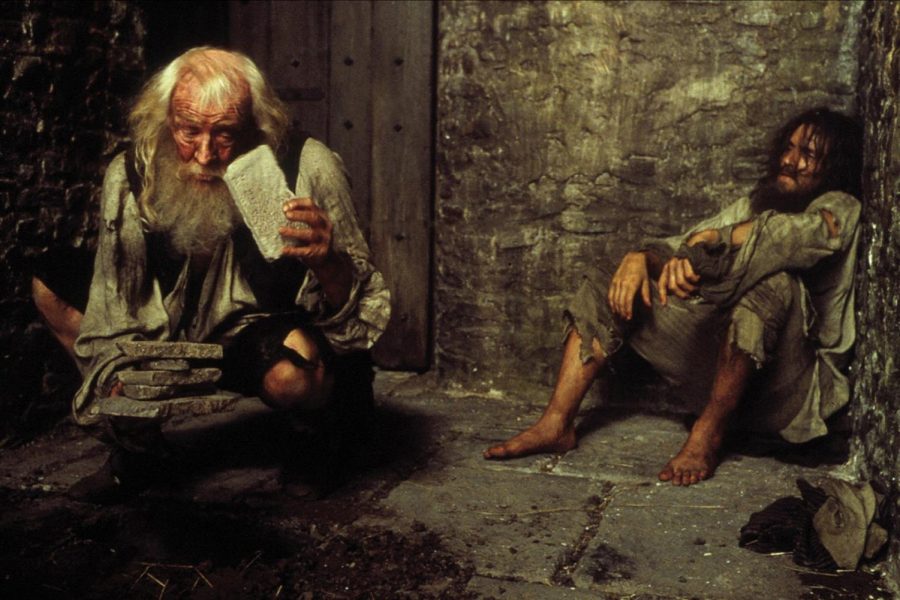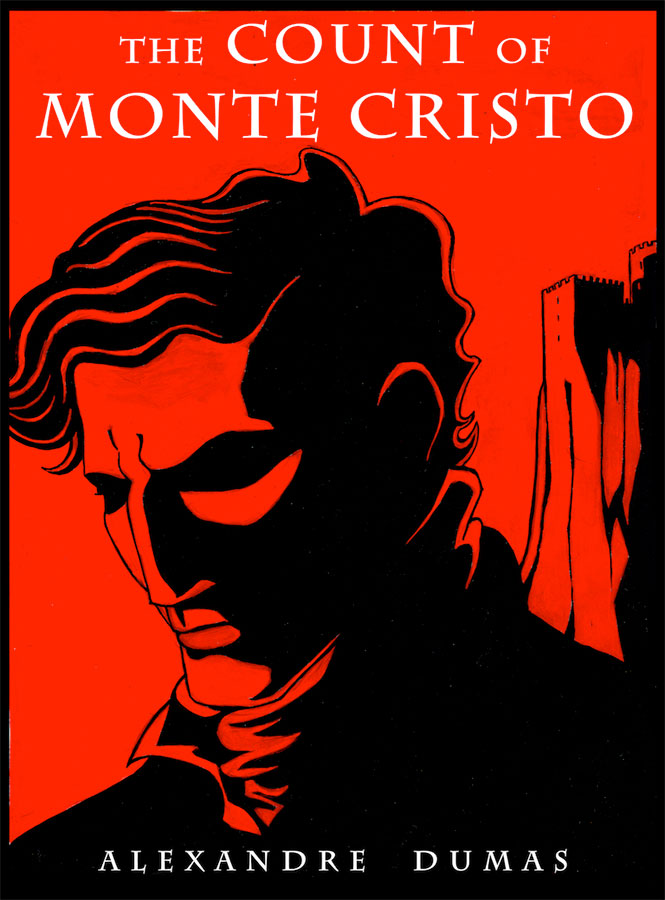Exploring Themes Of Justice And Revenge In The Count Of Monte Cristo: A Review

Table of Contents
Edmond Dantes's Journey: From Innocence to Vengeance
Edmond Dantès's transformation from an innocent young man to a master of vengeance forms the backbone of the novel. Understanding his path is crucial to grasping the novel's exploration of justice and revenge.
The Unjust Imprisonment: A Seed of Vengeance
Edmond's wrongful imprisonment is the catalyst for his entire transformation. This unjust imprisonment, fueled by betrayal and false accusations, plants the seeds of his relentless pursuit of revenge.
- Betrayal by friends: Fernand Mondego's jealousy and Danglars's ambition lead to Edmond's false accusation of treason.
- False accusations: A carefully orchestrated plot consigns Edmond to the horrific Chateau d'If, stripping him of his freedom, his love, and his future.
- The cruelty of prison life: Years of confinement and despair erode Edmond's hope, hardening his heart and fueling his desire for retribution. This unjust imprisonment becomes the defining factor in his path to revenge.
The Transformation: From Victim to Victor
Edmond's escape and subsequent transformation are equally compelling aspects of the novel's exploration of justice and revenge. His acquisition of wealth and knowledge allow him to meticulously plan his revenge.
- Mentorship from Abbé Faria: The Abbé's guidance provides Edmond with the knowledge and cunning necessary to execute his elaborate plan.
- Acquisition of Monte Cristo's treasure: This newfound wealth and power provide the resources Edmond needs to enact his revenge.
- Strategic planning: Edmond carefully orchestrates the downfall of those who wronged him, demonstrating a calculated and methodical approach to revenge. This calculated revenge is a key element in understanding his transformation and the themes of the novel.
The Complexities of Justice: Legal vs. Personal
The Count of Monte Cristo doesn't simply present a straightforward narrative of revenge; it explores the complexities of justice itself. The novel highlights the inadequacies of the official legal system and contrasts it with Edmond's personal brand of justice.
The Ineffectiveness of the Legal System
Dumas masterfully illustrates the failures of the official legal system to deliver true justice. The novel showcases a system riddled with corruption and inequality, leaving Edmond with no recourse but to take matters into his own hands.
- Corruption: Bribery and manipulation undermine the integrity of the judicial process, allowing the guilty to escape punishment.
- Lack of due process: Edmond's trial is a sham, lacking fairness and proper legal representation, a stark example of legal system failures.
- Societal inequalities: The novel highlights how societal inequalities exacerbate the injustices suffered by Edmond, furthering his sense of outrage and fueling his desire for revenge.
Edmond's Brand of Justice: A Moral Tightrope
Edmond's methods of revenge are far from clear-cut. While satisfying the reader's desire for retribution, they raise serious ethical questions about the nature of justice and the moral ambiguity of revenge.
- His meticulous planning: Edmond's calculated actions demonstrate a chilling intelligence and a ruthless pursuit of his goals.
- The suffering he inflicts on his enemies: The pain and suffering he inflicts are severe, blurring the line between justice and cruelty.
- The collateral damage: Edmond's actions unintentionally harm innocent individuals, raising questions about the consequences of his self-administered justice. This poetic justice, while satisfying, is undeniably morally complex.
The Cycle of Revenge: Consequences and Redemption
The final act of The Count of Monte Cristo explores the consequences of Edmond's actions and the potential for redemption. The ripple effect of revenge and the possibility of breaking the cycle are central to the novel's enduring themes.
The Ripple Effect of Revenge
Edmond's revenge has far-reaching consequences, affecting not only his direct enemies but also those around them. This cycle of violence underscores the destructive nature of unrestrained vengeance.
- The impact on his loved ones: His pursuit of revenge impacts his relationships with those he cares about, demonstrating the collateral damage of his actions.
- The destruction of families: The consequences of Edmond's actions lead to the downfall of families and the perpetuation of suffering.
- The perpetuation of violence: The novel suggests that revenge rarely brings lasting peace, but instead fuels a continuing cycle of violence.
Potential for Redemption: A Glimmer of Hope
Despite the darkness of his journey, the possibility of redemption for both Edmond and other characters offers a glimmer of hope. The novel's ending hints at the possibility of forgiveness and breaking the cycle of revenge.
- Edmond's acts of mercy: In the end, Edmond shows acts of mercy and forgiveness, suggesting a potential for personal redemption.
- His ultimate reconciliation: Certain reconciliations suggest the possibility of healing and moving beyond the cycle of revenge.
- The possibility of breaking the cycle: The novel subtly suggests that forgiveness and understanding can ultimately break the destructive cycle of revenge.
Conclusion: A Lasting Exploration of Justice and Revenge in The Count of Monte Cristo
The Count of Monte Cristo offers a profound exploration of the intricate relationship between justice and revenge. The novel masterfully portrays the complexities of both, highlighting the shortcomings of the legal system and the moral ambiguities inherent in seeking personal retribution. Edmond Dantès's journey serves as a cautionary tale, illustrating the devastating consequences of unchecked vengeance and the enduring power of forgiveness. Continue your exploration of justice and revenge in The Count of Monte Cristo by reading the novel today!

Featured Posts
-
 The Count Of Monte Cristo A Critical Review Of Alexandre Dumas Masterpiece
May 05, 2025
The Count Of Monte Cristo A Critical Review Of Alexandre Dumas Masterpiece
May 05, 2025 -
 Berlangas Hard Fought Ko A Fight He Tried To Avoid
May 05, 2025
Berlangas Hard Fought Ko A Fight He Tried To Avoid
May 05, 2025 -
 Paulistao Apostas Indicam Favorito No Classico Corinthians X Santos
May 05, 2025
Paulistao Apostas Indicam Favorito No Classico Corinthians X Santos
May 05, 2025 -
 Bradley Cooper Keeps His Distance The Gigi Hadid Leonardo Di Caprio Connection
May 05, 2025
Bradley Cooper Keeps His Distance The Gigi Hadid Leonardo Di Caprio Connection
May 05, 2025 -
 Anna Kendricks Age Revealed Fans React To Upcoming Milestone
May 05, 2025
Anna Kendricks Age Revealed Fans React To Upcoming Milestone
May 05, 2025
